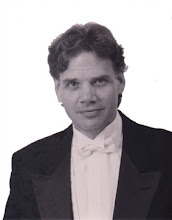Dear Russophiles,
Check out this music by the early twentieth-century Grinnell music professor Edward Scheve recorded last December:
"Logos" Choir
Check out this music by the early twentieth-century Grinnell music professor Edward Scheve recorded last December:
"Logos" Choir
http://www.youtube.com/watch?v=UULClCosk8Q
Why is this choir in
Moscow singing music by a Grinnell professor in Russian? It’s a long story. Through some strange
quirks of fate, the music of Edward Scheve (1865-1924) (Едвард Шеве) became popular in Russia among members of the
Baptist church (евангельскиe
христиан-баптисты) – and it remains popular today. How is it that this passionate devotion to
Scheve’s music was sustained through all those decades of the Soviet Union and
afterward? Edward Scheve taught at
Grinnell from 1906 until his death in 1924.
He was born into a family of Baptist missionaries in Germany, and came
to the US in 1890. He received musical
training at the Berlin Academy of Music.
 |
| A page from Scheve's Symphony in D Minor (from Grinnell College Archives) |
While at Grinnell, in 1908, he published the Oratorio, Der Tod und Auferstehung der Christi, an
evening-long work for large orchestra, choir, and soloists, with text in German
and English. The choral score was
published jointly by a German publisher and by Grinnell College. He wrote
several large-scale oratorios, including, intriguingly, a Requiem in honor of
Grinnell’s Civil War dead – those who are listed on the plaque in the back of
Herrick Chapel. I am trying to track
down that score, but I have yet to find it.
He also wrote a symphony, a piano concerto, quite a bit of organ music, and
various pieces of chamber music. The
orchestral score of Der Tod und
Auferstehung exists only in the Grinnell archive.
Last year, I received an email inquiry from a musician in Moscow, Oleg
Romanenko, and I sent him a pdf of Scheve’s manuscript. He went to work and spent many, many hours
creating the typeset score in the Finale notation program. In April of last year, they performed the
orchestral version of half of the work in Moscow using these materials – the
modern premiere. In a couple of days, at this year’s Grinnell alumni reunion,
we are performing two excerpts of the oratorio (on Sunday, June 2) in a version
that I’ve made for string quartet and organ.
The story gets stranger. I
could tell you, for instance, about the unexpected Baptist Russian émigré Scheve-ophiles
who popped up out of nowhere, having driven to Grinnell from California, and
devoted an entire week to photographing Scheve’s scores in the library. For Russian readers, check out the
“musical-literary” concert that was organized very recently around Scheve’s
oratorio by combining it with material from the 1951 Swedish Nobel Laureate Per
Lagerquist’s novel Barrabus:
http://www.portal-credo.ru/site/?act=press&type=list&press_id=688
The organizers of that event, titled «Варавва–отпущенник», combined Scheve’s oratorio, which tells the story
of Jesus’s passion, with spoken material from Lagerquist’s novel, which deals
with the same subject matter, but takes the perspective of the criminal
Barrabus. By the way, there’s material
galore here for anyone who’s interested in pursuing this story as a MAP. One interesting angle to my mind is the
fascination shown in this «Варавва-отпущенник» project with the story
of Jesus and Pontius Pilate – a theme that figures so prominently in Bulgakov.
John Rommereim
